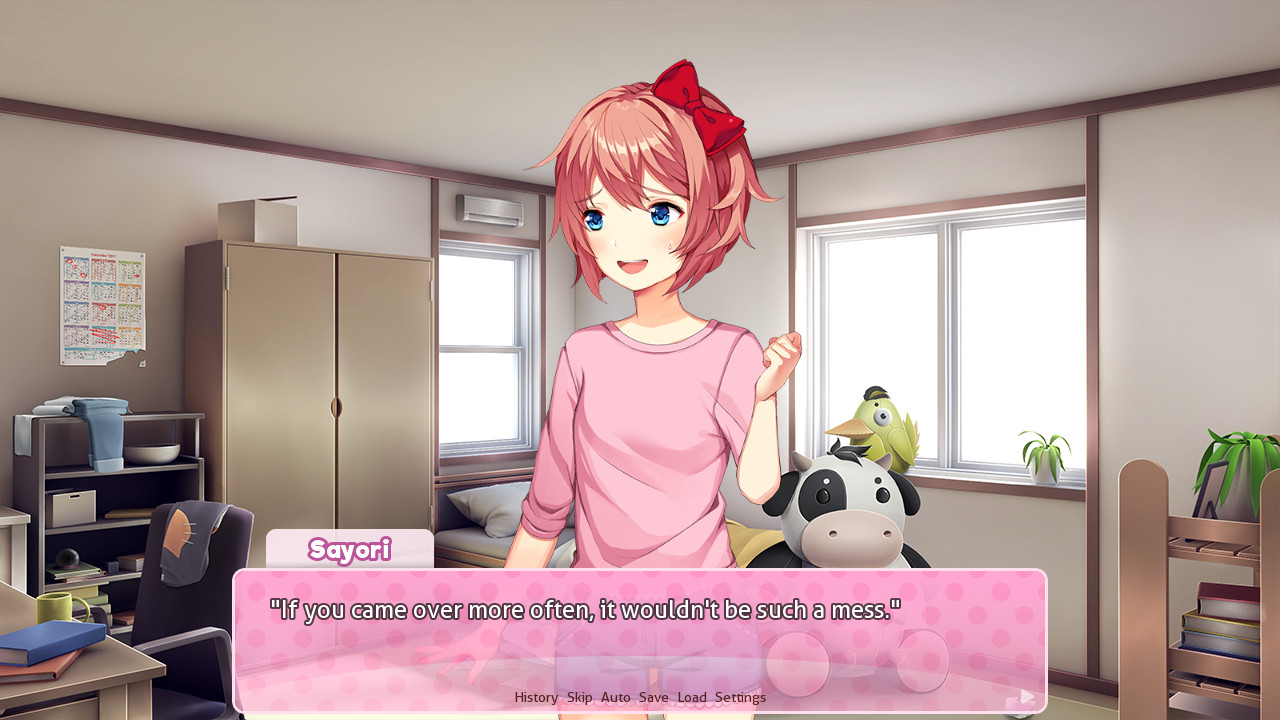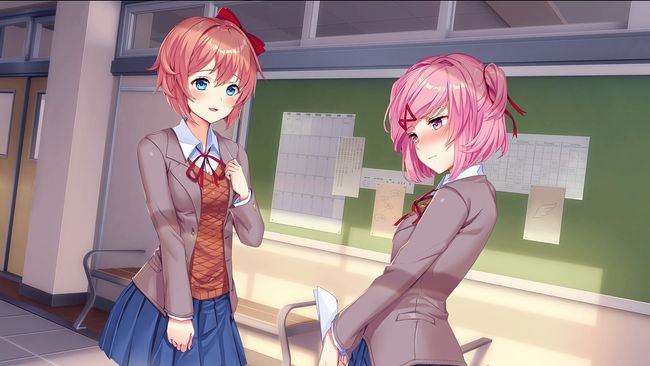

The game starts as a very cute anime girl dating sim with some esoteric elements. If you go into this game thinking "Oh, it looks cutesy", and refuse to actually pay attention to the warnings, then the failure is on you. It's filed under "Psychological Horror" on the Steam store. It's on the game's initial splash screen. "This game is not for those under 13 or people who are easily disturbed." Considering the needs of the individual who shows an interest will go a long way in ensuring that the game has a positive impact rather than a negative one. But for some players, this game might be better off unexplored. However, Doki Doki Literature Club is ultimately a thought-provoking, cerebral experiment in the more recent trend of video game metafiction - and an intensely rewarding one for those who can connect to it. Going through it as someone who has struggled with said issues evoked a cathartic response: for a vulnerable sufferer, I can imagine a much more difficult experience, especially given the game's suddenness. The hardest part of this game (and one that parents should think about) is its raw, unfiltered depictions of mental illness.


Some of the imagery is difficult to experience, and the overall setting becomes anarchic and twisted over time.

Doki Doki Literature Club doesn't pull any punches once it draws you in. The "twist" as informed people refer to it is that the lighthearted dating simulator is a psychological horror game.


 0 kommentar(er)
0 kommentar(er)
